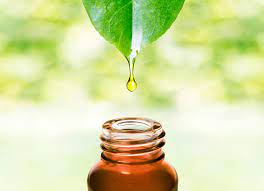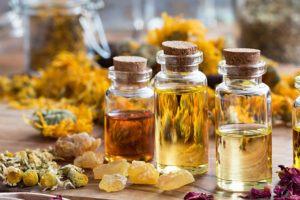Anxiety is a common problem that many people deal with on a daily basis. It can be caused by many things, such as stress at work, problems with relationships, or simply feeling overwhelmed. While there are many medications available to treat anxiety, some people prefer to use natural methods instead. One of the most popular natural remedies for anxiety is aromatherapy. In this blog post, we will discuss how aromatherapy can help you relax and manage your anxiety symptoms.
Contents
Defining Aromatherapy For Anxiety
 Anxiety is basically a condition of being nervous or stressed about something. It is a feeling of uneasiness, worry, or fear. Everyone experiences anxiety at some point in their lives. It is a normal human emotion. However, when anxiety becomes excessive, it can interfere with daily activities and disrupt your life. This is when aromatherapy for anxiety can be helpful.
Anxiety is basically a condition of being nervous or stressed about something. It is a feeling of uneasiness, worry, or fear. Everyone experiences anxiety at some point in their lives. It is a normal human emotion. However, when anxiety becomes excessive, it can interfere with daily activities and disrupt your life. This is when aromatherapy for anxiety can be helpful.
Aromatherapy is defined as the practice of using the natural oils extracted from flowers, bark, stems, leaves, roots, or other parts of a plant. These are used in order to enhance psychological and physical well-being. The inhaled aroma from these “essential” oils is thought to stimulate parts of the brain that affect mood and emotion.
Researchers have found that aromatherapy for anxiety is effective in reducing anxiety and reducing pain. Aromatherapy can be used as a complementary treatment for anxiety disorders.
How Does Aromatherapy For Anxiety Work?
Aromatherapy for anxiety is a form of alternative medicine that uses essential oils to treat anxiety and stress. Essential oils are natural, aromatic compounds found in plants. When used in aromatherapy, these oils are typically diluted and then inhaled or applied to the skin.
Aromatherapy is thought to work by stimulating the olfactory system, which is the part of the brain that processes smell. This, in turn, is thought to affect mood and stress levels. Aromatherapy has been used for centuries to promote relaxation and well-being.
There is some evidence to suggest that aromatherapy may be effective in treating anxiety. One study found that lavender oil was effective in reducing anxiety in people who had undergone dental surgery. Another study found that chamomile oil may be helpful in treating generalized anxiety disorder (GAD).
While there is some evidence to suggest that aromatherapy may be helpful in treating anxiety, more research is needed to confirm these findings. If you’re interested in trying aromatherapy for anxiety, talk to your doctor or a certified aromatherapist to get started.
9 Best Examples Of Essential Oils Used For Aromatherapy
There are a number of essential oils that can be used for aromatherapy to help ease anxiety. Below are ten of the best essential oils for anxiety relief:
Lavender oil
It is one of the most popular and well-known essential oils used for relaxation and stress relief. Studies have shown that lavender oil can help reduce anxiety, improve sleep quality, and promote calmness. Lavender oil is also effective in treating anxiety disorders such as panic attacks and generalized anxiety disorder. In fact, this essential oil is so effective that it has even been approved by the FDA as a treatment for anxiety. Moreover, lavender oil is also useful in treating other conditions such as headaches, depression, and insomnia.
Bergamot oil
 Bergamot oil is a citrusy essential oil that has a sweet, floral scent. This oil has shown to be effective in reducing anxiety and depression. One study showed that bergamot oil was as effective as the antidepressant drug imipramine in reducing symptoms of depression. This is likely due to the oil’s ability to reduce levels of the stress hormone cortisol. It often works well when used in combination with other essential oils such as lavender or chamomile.
Bergamot oil is a citrusy essential oil that has a sweet, floral scent. This oil has shown to be effective in reducing anxiety and depression. One study showed that bergamot oil was as effective as the antidepressant drug imipramine in reducing symptoms of depression. This is likely due to the oil’s ability to reduce levels of the stress hormone cortisol. It often works well when used in combination with other essential oils such as lavender or chamomile.
Chamomile oil
People suggest chamomile oil as a sweet-smelling essential oil. It has been used for centuries to promote relaxation. This oil has been shown to be effective in treating anxiety and insomnia. One study showed that chamomile oil was as effective as the anti-anxiety medication lorazepam in treating anxiety. In fact, chamomile oil may be more effective than lorazepam in treating anxiety because it does not have the same side effects as the medication. Chamomile oil is also effective in treating nausea, vomiting, and indigestion.
Ylang-ylang oil
Ylang-ylang oil is a sweet, floral oil that is said to be helpful in reducing anxiety and promoting relaxation. Diffuse a few drops of ylang-ylang oil in your home or office, or add it to a bath for a relaxing soak. You can also apply a few drops to your wrists or neck as needed throughout the day. Researchers have found that ylang-ylang oil may help to lower blood pressure and heart rate, both of which can be helpful in reducing anxiety. Also, it is one of the few essential oils that are safe to use during pregnancy.
Orange blossom oil
This is often used as a natural antidepressant and can help to ease anxiety and promote a sense of well-being. It can also help to improve circulation, which is often an issue when you’re feeling anxious. You can diffuse orange oil at home or add a few drops to your bathtub. In fact, just the scent of orange can help to reduce anxiety. More often, this blossom oil is used to help with insomnia. Some studies have also shown that it can be helpful in treating post-traumatic stress disorder. Overall, orange blossom oil can have a significant effect on anxiety and other mental health disorders.
Sandalwood oil
 This type of aromatherapy essential oil is derived from the Santalum album tree. The oil has a sweet, woody scent that is said to be calming and relaxing. When used in aromatherapy, sandalwood oil can help to reduce anxiety and stress levels. Also, the oil is believed to have grounding and balancing properties. Sandalwood oil can be used in a diffuser or added to a bath. For the best results, it is recommended that you use sandalwood oil in conjunction with other calming essential oils, such as lavender or chamomile.
This type of aromatherapy essential oil is derived from the Santalum album tree. The oil has a sweet, woody scent that is said to be calming and relaxing. When used in aromatherapy, sandalwood oil can help to reduce anxiety and stress levels. Also, the oil is believed to have grounding and balancing properties. Sandalwood oil can be used in a diffuser or added to a bath. For the best results, it is recommended that you use sandalwood oil in conjunction with other calming essential oils, such as lavender or chamomile.
Clary Sage
It is a flowering herbaceous perennial plant that grows to about four feet high with large leaves and pretty blue flowers. The oil is steam distilled from the flowering tops of the plant and has a sweet, nutty, herbaceous scent. Clary sage is one of the most soothing and relaxing essential oils and has been used for centuries to help relieve anxiety, stress, tension headaches, and even menstrual cramps.
Lemon oil
Lemon oil in aromatherapy for anxiety is said to have a calming and relaxing effect on the body. It is also said to be helpful in easing symptoms of depression. Lemon oil is one of the most popular essential oils used in aromatherapy for anxiety. This oil has a fresh, citrusy aroma that can help to brighten your mood and promote feelings of well-being. Moreover, it works to cleanse and purify the air, making it a refreshing addition to any room. Lemon is already believed to have medicinal properties, and when used as an essential oil, these benefits are magnified.
Rosemary oil
This type of essential oil is said to be helpful in reducing anxiety and promoting relaxation. Rose oil is one of the most popular essential oils used in aromatherapy for anxiety. This oil has a sweet, floral aroma that can help to soothe your nerves and ease stress. Also, it is said to be helpful in balancing your emotions and promoting feelings of love and self-worth. Overall, this type of oil can be very beneficial in promoting a sense of calm and well-being.
These are the top 10 essential oils used in aromatherapy for anxiety. Moreover, essential oils are actually quite popular among people who suffer from anxiety. In fact, many people use essential oils for aromatherapy to help them relax and feel better. If you are looking for an effective way to reduce anxiety, then consider using essential oils in your treatment plan.
Benefits And Risks
There are numerous benefits of aromatherapy for anxiety. Aromatherapy is generally considered safe when used as directed. However, there are a few potential risks to be aware of. So, both are discussed below:
Benefits
The essential oils offer a wide range of benefits for mental and emotional health. Aromatherapy can be used to:
- Reduce stress: Aromatherapy is believed to work by stimulating the smell receptors in the nose, which are connected to the limbic system in the brain. The limbic system is responsible for emotions, behavior, and long-term memory.
- Ease anxiety: It has been shown to be an effective treatment for anxiety and can be used as a complementary therapy for other mental health conditions such as depression.
- Improve sleep: The calming effects of certain essential oils can help to promote better sleep.
- Promote relaxation: Relaxation is one of the main goals of aromatherapy. The scents of some essential oils are believed to help the body relax by reducing heart rate and blood pressure.
- Boost mood: It can also be used to improve mood and alleviate symptoms of depression.
Risks
There are a few potential risks associated with aromatherapy, particularly when using essential oils. These include:
- Allergic reactions: Essential oils can cause allergic reactions in some people. If you have any allergies, it’s important to test the oil on a small area of the skin before using it.
- Irritation: Some essential oils can cause irritation when applied to the skin. If you experience any irritation, stop using the oil immediately and consult a doctor.
- Toxicity: Ingesting essential oils can be toxic. Do not take essential oils internally unless directed by a qualified health care professional.
So, these are some benefits and risks of aromatherapy for anxiety. If you want to try it, make sure to consult with a qualified aromatherapist first. And, always test the oil on a small area of skin before using it.
Overall, this type of therapy is generally considered safe when used as directed. However, like with any treatment, there are potential risks involved. So, it’s always best to be well informed before starting any new treatment.
Tips To Choose The Right Essential Oil
When you are feeling anxious, there are a few things to keep in mind when choosing the right essential oil. These include:
Identify what you want to achieve
 It is the first thing you should do. Aromatherapy can be used for different purposes like reducing anxiety, improving sleep quality, or just making your mood better. When you know what you want, it will be easier to select the right oil. Ask yourself, what do I need right now? So, doing things will make you feel better?
It is the first thing you should do. Aromatherapy can be used for different purposes like reducing anxiety, improving sleep quality, or just making your mood better. When you know what you want, it will be easier to select the right oil. Ask yourself, what do I need right now? So, doing things will make you feel better?
Check the list of oils good for anxiety
Not all essential oils can be used to relieve anxiety. Some can even make it worse. To be on the safe side, check the list of oils that are known to help with anxiety and stress. Some of these include lavender, chamomile, bergamot, sweet marjoram, and ylang-ylang. In fact, these are some of the most popular essential oils used in aromatherapy.
Consider your health condition
If you have a health condition, be sure to check with your doctor first before using any essential oil. This is especially important if you are pregnant, breastfeeding, or have asthma or allergies. Some oils can interact with medications and may not be suitable for you. hence, you should be extra careful. However, it doesn’t mean that you can’t use aromatherapy at all. There are still many oils that are safe for people with health conditions. You just need to be more selective in choosing the right one.
Check the ingredients
This is also an important thing to make sure that the essential oil you choose has only natural ingredients. Some products on the market today use synthetic ingredients that can cause more harm than good. In fact, these can even be dangerous. So, make sure to check the label carefully before buying anything. This thing is essential in order to get the best results and avoid any unwanted side effects. Even it is advised to ask for help from an expert if you are not sure about something.
Do a skin patch test
This is especially important if you have sensitive skin. Put a few drops of the oil on your wrist and wait for 24 hours to see if there is any reaction. If there is none, then it should be safe to use. More often, a patch test is necessary when you use oil for the first time. This is more about being cautious than anything else. Because different people can react differently to the same oil, it is always better to be safe than sorry.
Start with a low dilution
When using essential oil for the first time, it is always best to start with a low dilution. This means that you should mix it with a carrier oil like jojoba or almond oil. You can then increase the concentration as needed. It actually described as the rule of thumb in aromatherapy. This will help you to avoid any skin irritation or other unwanted side effects. However, some people can use the oil neat (undiluted). But, it is always best to start with a low dilution and then increase it as needed. In this way, you can find the right concentration that works best for you.
Choose an oil with a calming effect
 It might sound obvious but when you are feeling anxious, it is best to choose an oil with a calming effect. This can help to relax your mind and body. Some of the best oils for this purpose include lavender, chamomile, and bergamot. In fact, these three oils are often used together in a blend to maximize their calming effect. Moreover, these oils are also safe for people with health conditions.
It might sound obvious but when you are feeling anxious, it is best to choose an oil with a calming effect. This can help to relax your mind and body. Some of the best oils for this purpose include lavender, chamomile, and bergamot. In fact, these three oils are often used together in a blend to maximize their calming effect. Moreover, these oils are also safe for people with health conditions.
Mix and match different oils
Don’t be afraid to experiment with different oils to see what works best for you. You can even mix and match different oils to create your own unique blend. Just make sure that the oils you choose are compatible with each other. In fact, some studies have shown that certain blends of essential oils can be more effective than a single oil. So, feel free to experiment and find the right blend that works best for you.
When it comes to essential oils, there is no one-size-fits-all solution. The best oil for you will depend on your specific needs and preferences. Just keep these tips in mind and you should be able to find the right oil to help you relax and reduce anxiety. Moreover, don’t forget to consult with your doctor first if you have any concerns.
Conclusion
To conclude, aromatherapy for anxiety is an effective natural treatment option with few risks. If you’re looking for a way to reduce anxiety and promote relaxation, consider using essential oils. Be sure to choose high-quality oils from a reputable source. And always follow the manufacturer’s instructions for use.
Moreover, you can enjoy the benefits of aromatherapy by diffusing essential oils in your home or office, adding them to your bath, or massaging them into your skin. Experiment with different oils and find the ones that work best for you. With regular use, you can experience a reduction in anxiety symptoms and an improved sense of well-being.
For more information, please contact MantraCare. Anxiety is a common mental health condition characterized by persistent feelings of worry, fear, and apprehension. If you have any queries regarding Online Anxiety Counseling experienced therapists at MantraCare can help: Book a trial Anxiety therapy session


